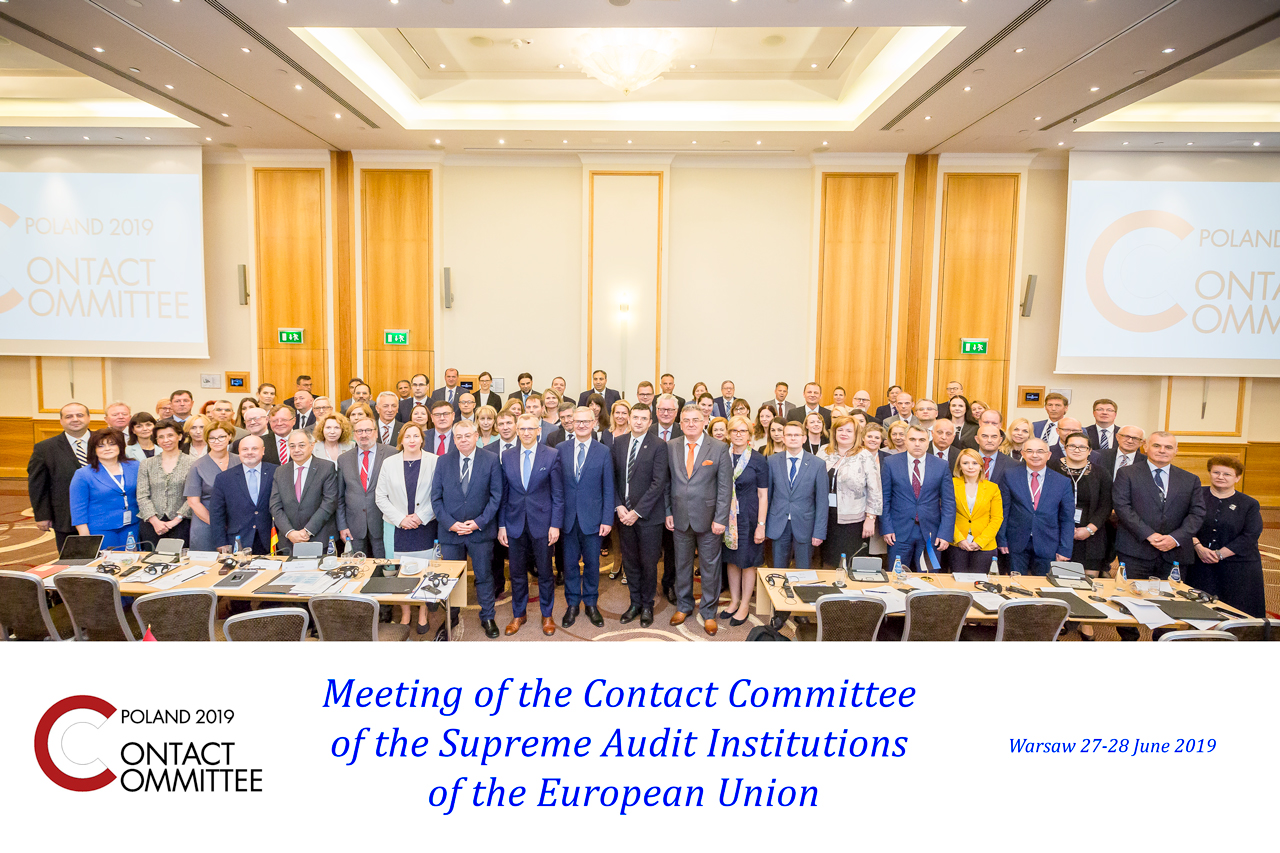Meeting of the Contact Committee of the Heads of the Supreme Audit Institutions of the European Union, Warsaw, 27-28 June 2019

The annual meeting of the Contact Committee was hosted by the Supreme Audit Office of Poland (NIK) and chaired by President Krzysztof Kwiatkowski. The meeting was also attended by – in the capacity of observers – Heads of the Supreme Audit Institutions (SAIs) of candidate countries and representatives of SIGMA.
The central part of the meeting was a seminar on “Digital Europe: Challenges and Opportunities for EU SAIs", which was chaired by Tytti Yli-Viikari, Auditor General of Finland. Given the context of the European Commission priority to implement a Digital Single Market Strategy, including a Digital Agenda for Europe, and the ever increasing need for SAIs to use digital tools to support audit processes, the seminar provided an opportunity to discuss the EU SAIs' role in digitalisation in the European Union. The discussion was introduced by Marek Zagórski, the Polish Minister for Digital Affairs, Michał Boni, an MEP from 2014 to 2019, and Małgorzata Nikowska from the Commission's DG CNECT, who presented the topic from the perspective of, respectively, a Member State (Poland), citizens and the Commission.
The seminar was followed by two panel discussions. The participants in the first were Janar Holm (SAI of Estonia, chair), Charles Deguara (SAI of Malta), Stefan Lundgren (SAI of Sweden) and Tomaž Vesel (SAI of Slovenia), who discussed the challenges and opportunities of performance audits relating to EU and national programmes in the area of e-government and cybersecurity. The debate highlighted the impact of digital transformation on the work of SAIs, which are increasingly undertaking IT audits.
The second panel discussion, chaired by Manfred Kraff (Internal Audit Service, European Commission) addressed, among other things, the use of digital resources in audits. The panelists were Vítor Caldeira (SAI of Portugal), Kay Scheller (SAI of Germany), Arno Visser (SAI of the Netherlands) and Tytti Yli-Viikari (SAI of Finland). This panel presented examples of good practice in the form of innovative approaches, strategies and tools with the potential to help SAIs ensure the added value of their audits.
EU SAIs contribute to the success of the digitalisation by exercising their mandates and embedding digital tools and solutions in their work where appropriate. The Contact Committee concluded that, in order to play their part in the process, EU SAIs are invited to:
- audit the relevant activities and capacities in implementing digitalisation;
- ensure that the SAIs´ right of access to relevant information and data is not undermined as a consequence of digitalisation;
- ensure the digital preparedness of SAIs for performing such audits by investing in technology, ideas and people;
- optimise SAIs' audit approaches and procedures accordingly and
- use digital communication in their endeavour to make information available to civil society and to consult stakeholders, when relevant, in the process of their work.
On the second day of the meeting, the Contact Committee took note of the results of activities by its working bodies, other planned activities and the outcome of the international air quality audit (coordinated by NIK and the SAI of the Netherlands), as well as the audit on ICT infrastructure in the public sector (SAI of Latvia).
The next meeting of the Contact Committee, to be held in October 2020, will be hosted by the European Court of Auditors.